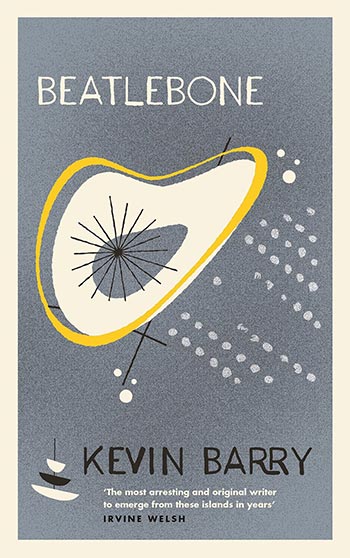‘Beatlebone’ Imagines John Lennon in Ireland
Kevin Barry’s New Novel Posits Slight Alteration in the World
Kevin Barry’s new novel posits a very slight alteration in the world as it is. What if, Barry asks, in 1978 John Lennon had taken a trip to the west of Ireland to visit Dorinish, the small, uninhabited island he’d purchased in 1967? Who might he have encountered, and how would it have affected his long creative drought?
In reality, of course, most of the five years prior to Lennon’s assassination in 1980 were spent in the Dakota apartment building in Manhattan. There, Lennon baked bread, took care of his young son, Sean, and generally acted as a househusband rather than a working musician. Barry draws heavily on Lennon’s real life, with the invented quest to visit the island serving as a kind of desperate attempt by the former Beatle to regain some sense of his lost inspiration. Lennon “sets out for the place as an animal might, as though on some fated migration. There is nothing rational about it nor even entirely sane and this is the great attraction.”

This is an intriguing idea for a novel, but the book would fall flat if Barry hadn’t so fully inhabited Lennon’s personality and speech, which is fast, funny, sardonic, sad, and very profane. Lennon’s conversations with Cornelius, the Irish driver he has hired to take him to Dorinish, are a highlight, with Cornelius acting as a local guide on this magical mystery tour. Much of the book is in dialogue, and with extra spaces between each paragraph and several chapters written in the form of screenplays, Beatlebone moves forward at a frantic pace.
That is until it changes pace entirely. Two-thirds of the way through the book, Barry abandons fiction and spends 30 pages talking about how he came to write the book and the research he conducted, including hours spent watching and listening to interviews with Lennon in order to get just the right rhythm and tone of voice. Not surprisingly, the author is sympathetic to Lennon’s struggles as he approaches 40. Barry writes: “The sense of an ache or wound just beneath the skin — almost impalpable but always there — is not uncommon as you move through the sobering ruts of your thirties.” This metacognitive, postmodern move into personal narrative is a real risk, so it’s all the more impressive that when nonfiction shifts back to fiction, the book feels somehow more complete than it might otherwise have been without the detour.
The book’s title refers to the album Barry imagines Lennon might have recorded after his trip to Ireland. Unlike the radio-friendly songs Lennon wrote for his real final album, Double Fantasy, Beatlebone is a mixture of sounds and voices and scraps of undeveloped tunes — a kind of album-length version of “Revolution #9.” The music sounds to the recording engineer “like a cat having an incident,” and he tells John, “Well there are no songs. As such. I mean song type songs. Is the thing of it, John.”
But John is okay with that. The failure of the album will cleanse him of his past miseries so that he will be able to “make something delicate and fine and odd.” That didn’t happen, of course, because of Mark David Chapman. Lennon’s killer is never mentioned in Beatlebone, but the death he will cause looms over this high-spirited novel, lending an air of melancholy and poignancy to the book’s many moments of well-earned delight.



